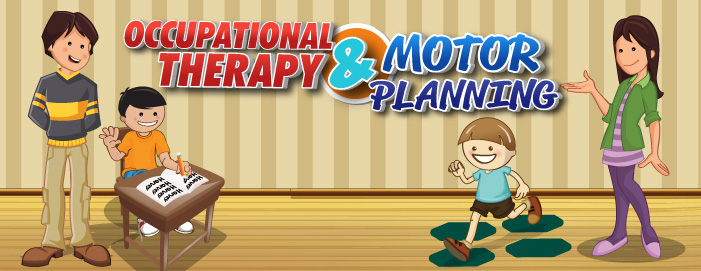|
What is motor planning?
Motor planning is the ability to plan and sequence movements. This process involves the ability to ideate, systematize and perform new actions or those requiring sequencing. Every activity a child performs, however small, requires motor planning. To succeed in motor planning, the brain requires vital information from the sensory system as well as awareness of the body and movements. This information can then be used to plan unfamiliar tasks.
Motor planning is essential for daily skills
Many skills that children need to be independent are affected by their motor planning abilities. For example, the task of putting on a shirt while getting ready for school requires the following steps:
- Identifying the correct side of the shirt
- Separating the two sides of the shirt.
- Putting one arm through one sleeve and pulling it up.
- Putting the other arm through the sleeve and pulling it up.
- Putting the shirt over your head.
- Pulling the shirt down over your body.
- Pulling the sides down and ensuring that it is straight.
When we break down activities it becomes clear that there is lots of room for confusion until the motor plan for the task becomes automated. This can become very frustrating for children, parents and teachers when new skills are being learnt.
How do difficulties with motor planning present?
Children with motor planning problems may have difficulties with mastering new skills and they may be clumsy, messy or accident prone. They may find it challenging to start a task and may not know where to start. When performing tasks they may rush and produce haphazard work. These children may have difficulty developing strategies to complete work making it difficult to finish work in a timely fashion. Handwriting can be a difficult for children with motor planning challenges in terms of the spatial organization of written work, putting their thoughts down on paper, and lack of sequencing leads to tasks being performed in a fragmented manner. Organising their bodies in space is difficult for these children and may affect their ability to engage in sport and other physical tasks, tool manipulation, self care tasks, and any other tasks requiring sequencing of steps. and any other tasks requiring sequencing of steps.
Occupational Therapy Role in Motor Planning Difficulties
Occupational therapists are experts at analyzing activities. In order to have competent motor planning, a child must be able to process sensory input from his body, have efficient body perception and be able to move around their environment. Occupational therapy targets these difficulties through appropriate and purposeful activities, and also offers the child and family coping strategies for the challenges of school and daily life.
|




 and any other tasks requiring sequencing of steps.
and any other tasks requiring sequencing of steps. Other common features
Other common features
